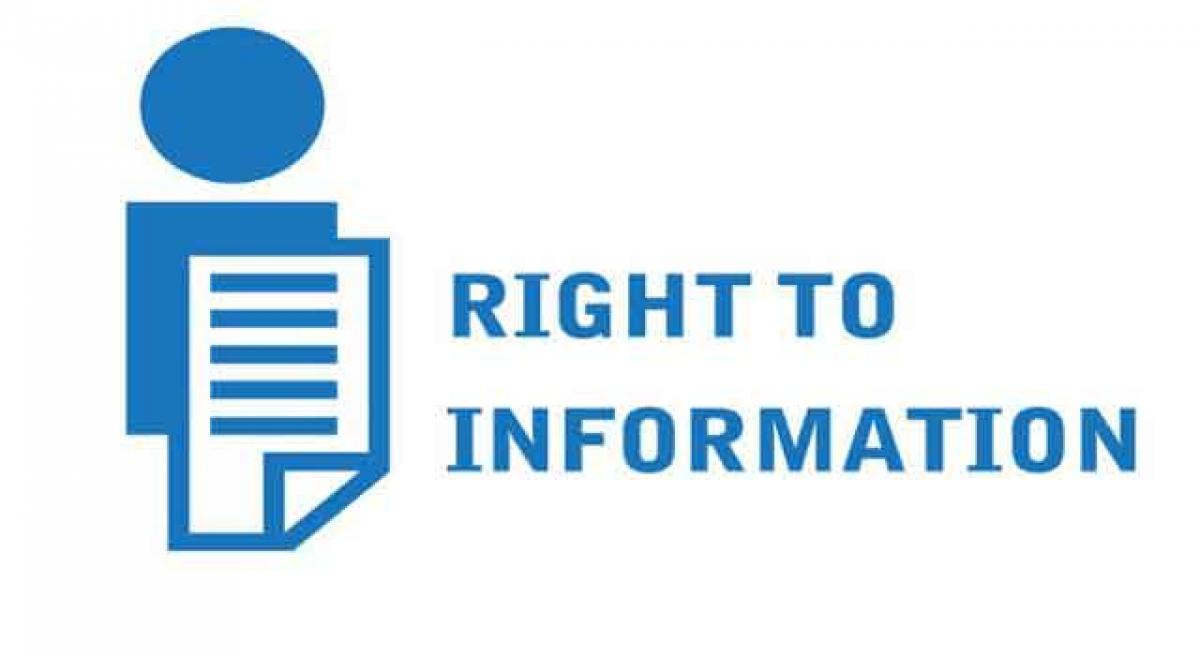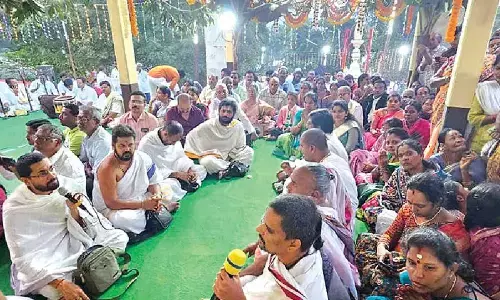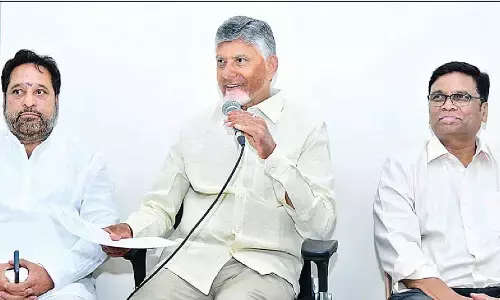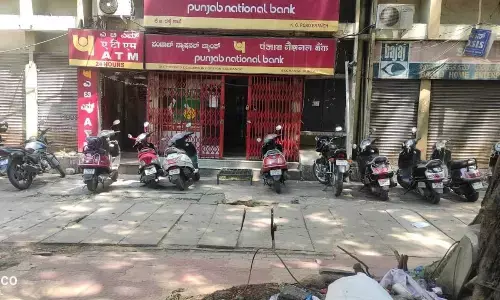BCI’s duty to disclose under RTI

Bar Council of India (BCI) is a statutory body of advocates meant for protecting the values and ethical standards of the legal profession. This profession had a lion’s share in the struggle for independence of India, with Gandhi, Nehru and several other prominent leaders of national movement being lawyers.
Bar Council of India (BCI) is a statutory body of advocates meant for protecting the values and ethical standards of the legal profession. This profession had a lion’s share in the struggle for independence of India, with Gandhi, Nehru and several other prominent leaders of national movement being lawyers.
The standards of profession and legal education are the responsibilities of the BCI. It has to take care of law colleges to produce worthy lawyers, and see those lawyers conduct themselves worthy of their profession.
Not complying with the Section 4(1) (b) needs to be considered as a major breach of RTI Act by the prestigious statutory body, BCI. It is also surprising that they are repeatedly taking a plea that, though they have such information in computer, they have not posted it on website. They have already exhausted 10 years of time in fulfilling this obligation.”
Being a public authority, the Bar Council of India has to comply with mandatory RTI requirements. Central Information Commission (CIC) had to order that Bar Council of India should comply with the mandatory RTI requirements. In a second appeal, the CIC has directed the BCI Chairman to inform when they would be complying with 4(1) (b) on their official website.
The Section 4 (1) (b) of the RTI Act states that every public authority shall maintain 17 specified categories of updated information about the working of the organisation which should be posted on its website as well as in public domain through other methods.
Within 120 days from the commencement of the Act, every public authority is required to comply with this mandatory requirement. An advocate, K R Chitra, had sought information related to inspection and meetings conducted by the BCI.
Not complying with the Section 4(1)(b) needs to be considered as a major breach of RTI Act by the prestigious statutory body, BCI. It is also surprising that they are repeatedly taking a plea that, though they have such information in computer, they have not posted it on website. They have already exhausted 10 years of time in fulfilling this obligation.”
The BCI has another statutory duty to furnish annual report in compliance with 4(1) (b), as required under Section 19(8) (a) (vi). The CIC also directed the PIO to show cause why maximum penalty should not be imposed for this breach of RTI.
The Commission required the Chairman, BCI, to file an affidavit, explaining when they would be complying with 4(1) (b) on their official website. The Commission said that all the responses should reach the commission by May 9, 2016, else it will be compelled to initiate appropriate action against the Chairman, BCI, for noncompliance of the Section 4(1) (b).
The appellant by her RTI application sought information relating to inspection of all law colleges, universities/institutions and other meetings by the members of the Bar Council of India during the period from 01.04.2010 till date.
She wanted the names of members of Bar Council of India, names of all law colleges/universities and institutions inspected by each member, date/month/years of inspection etc. The PIO replied on 12.10.2015 providing parawise reply. First appeal was dismissed on 29.11.2015 as the PIO has provided information.
The PIO of Bar Council stated that they offered NIC to prepare a comprehensive website to post information as required under section 4(1)(b) of the RTI Act including the information about inspection of law colleges as sought by the appellant. The appellant is asking complete details on 7 points, which involves huge information.
For example, the first question, seeking inspection reports on all colleges, universities, etc. from 2010 till date along with several details. The PIO submitted that there are thousands of colleges and other institutions, and inspection details about them are impossible to be given unless the appellant focuses on a specific institution or period.
She refused to reduce the ambit of questions and insisted on inspection or information in the form of CD.
The Commission holds that the appellant is adamant on seeking unnecessary details. However, it is noticed that the Bar Council of India has not satisfactorily complied with the Section 4(1)(b) requirements. It is a major breach of RTI by prestigious organisation called the BCI.
It is also surprising that they are repeatedly taking a plea that, though they have such information in computer, they have not posted it on website. They have already exhausted 10 years of time in fulfilling this obligation.
The Commission directed the public authority to furnish annual report in compliance with 4(1)(b), as required under section 19(8)(a)(vi) and directed the PIO to show cause why maximum penalty should not be imposed for this breach of RTI.
The Commission also directed the Chairman, BCI to file an affidavit explaining when they would be complying with 4(1)(b) on their official website, all the responses should reach the commission by May 9, 2016. If not, Commission will be compelled to initiate appropriate action against the Chairman, BCI for non- compliance of section 4(1)(b), which was sought under section 3 by the appellant in this case as that amounts to denial of information attracting the penalties. (based on decision in CIC/SA/A/2016/000023 7.4.2016 KR Chitra v BCI)
Action against complaints
In an earlier order, the Central Information Commissioner has ruled that Bar Councils and Associations, being established under the Advocates Act, come under the purview of the Right to Information Act. The CIC was hearing an appeal filed by one Harinder Dhingra, who had sought information regarding the number of complaints filed against advocates under Section 35 of the Advocates Act in the past 10 years.
He also sought to know the number of cases disposed of, number of advocates alleged to have committed misconduct or unethical conduct as per provisions of Advocates Act, etc. This information was sought with regard to the lawyers enrolled with the Bar Associations located at Rewari, Faridabad, Punchkula and Gurgaon, for at least 3 years.
He further demanded to know the number of disciplinary cases against advocates, which were sent to the Bar Council of Punjab and Haryana, at Chandigarh, by the Bar Associations located at Rewari, Faridabad, Punchkula and Gurgaon.
The CIC observed that the Bar Council is a statutory body constituted under Advocates Act, 1961, “to protect ethical standards of advocates and admonish the members for misconduct.” It then ruled that the information sought from the Bar Council cannot be denied to the appellant as it does not attract any exemption under the RTI Act. The CIC further observed that even though Bar Associations are different from Bar Councils, they are also constituted under a law made by the Parliament, i.e. the Advocates Act, 1961.
“They too have a duty to inform the people about their activities,” it ruled. Finally, the CIC issued the following directions: “The Commission directs the Bar Council of Punjab & Haryana, Chandigarh, to furnish the information sought.
The action taken under Section 35 by the Bar Council should be published under Section 4(1)(b) of the RTI Act on their own without anybody need to see it. The Complaints also might have emanated from district bar associations and reach the Bar Council of the State.
Though Bar Associations are different from Bar Councils, they are also constituted under a law made by Parliament, i.e., the Advocates Act, 1961. They too have a duty to inform the people about their activities. “
The Commission directed the Presidents of the Bar Associations at Rewari, Faridabad, Punchkula and Gurgaon, to provide copies of complaints against, if any, forwarded by them to the Bar Council of Punjab & Haryana at Chandigarh. It also directed the FAA/Bar Council of Punjab & Haryana, Chandigarh to show cause why disciplinary action cannot be recommended against him for not taking up the first appeal of the appellant.
By:Madabhushi Sridhar

















